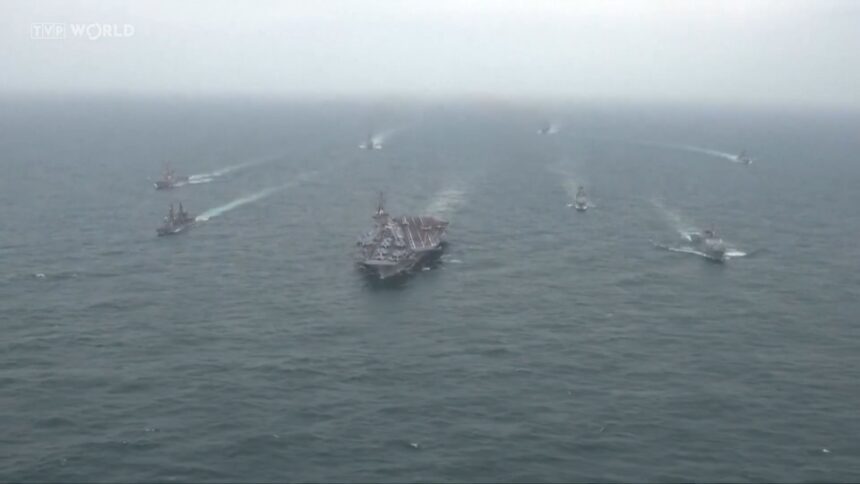In a significant escalation of military posturing, the United States has redirected the USS Abraham Lincoln aircraft carrier strike group to the Middle East as tensions between Israel and Iran reach alarming levels. The deployment comes at a critical moment when the region stands at what many analysts describe as the precipice of a potentially devastating wider conflict.
The USS Abraham Lincoln, accompanied by its full complement of support vessels and aircraft, is currently navigating toward the eastern Mediterranean, according to Pentagon officials speaking on condition of anonymity. This strategic repositioning represents the second major carrier deployment to the region in recent months, following the USS Theodore Roosevelt’s mission earlier this year.
“This deployment sends an unmistakable message about American resolve to prevent further escalation,” said Defense Secretary Lloyd Austin in a statement released Tuesday. “We are committed to regional stability and the protection of our allies.”
The decision follows Iran’s unprecedented direct attack on Israel in April, when Tehran launched over 300 drones and missiles, and Israel’s subsequent retaliatory strikes on Iranian military installations. Intelligence sources cited by CO24 World News indicate that Iran may be preparing for another, potentially more devastating assault, while Israel has publicly vowed a “crushing response” to any further aggression.
Regional experts monitoring the situation report that diplomatic channels remain active but increasingly strained. “We’re witnessing a dangerous game of brinkmanship,” explained Dr. Sarah Levinson, Middle East security analyst at the International Crisis Group. “Each side believes it must demonstrate strength, but this creates a volatile dynamic where miscalculation could trigger catastrophic consequences.”
The Abraham Lincoln carries approximately 5,000 personnel and dozens of advanced fighter jets, significantly bolstering American military capabilities in the region. Pentagon spokesperson Admiral John Kirby emphasized that the deployment is “defensive in nature” but acknowledged that the carrier group provides “all options” should hostilities escalate further.
Economic impacts are already being felt globally, with oil prices surging 8% since tensions intensified last week. Financial analysts at CO24 Business report that extended conflict could drive prices above $100 per barrel, potentially triggering inflationary pressures across developed economies still recovering from recent economic challenges.
Canadian interests are also directly affected, with Global Affairs Canada issuing updated travel advisories for the entire region and several Canadian energy firms with Middle Eastern operations implementing contingency protocols. Prime Minister Justin Trudeau has called for “immediate de-escalation” while reaffirming Canada’s commitment to Israel’s security, according to CO24 Canada News.
Meanwhile, diplomatic efforts continue at the United Nations, where an emergency Security Council session has been called for Thursday. However, expectations for meaningful intervention remain low given the divided positions of permanent members.
As warships move into position and fighter jets conduct heightened patrol missions, the fundamental question remains: can diplomatic channels prevail in a region where historical animosities and existential fears drive decision-making, or are we witnessing the opening moves of a conflict that could reshape the Middle East for generations to come?


















